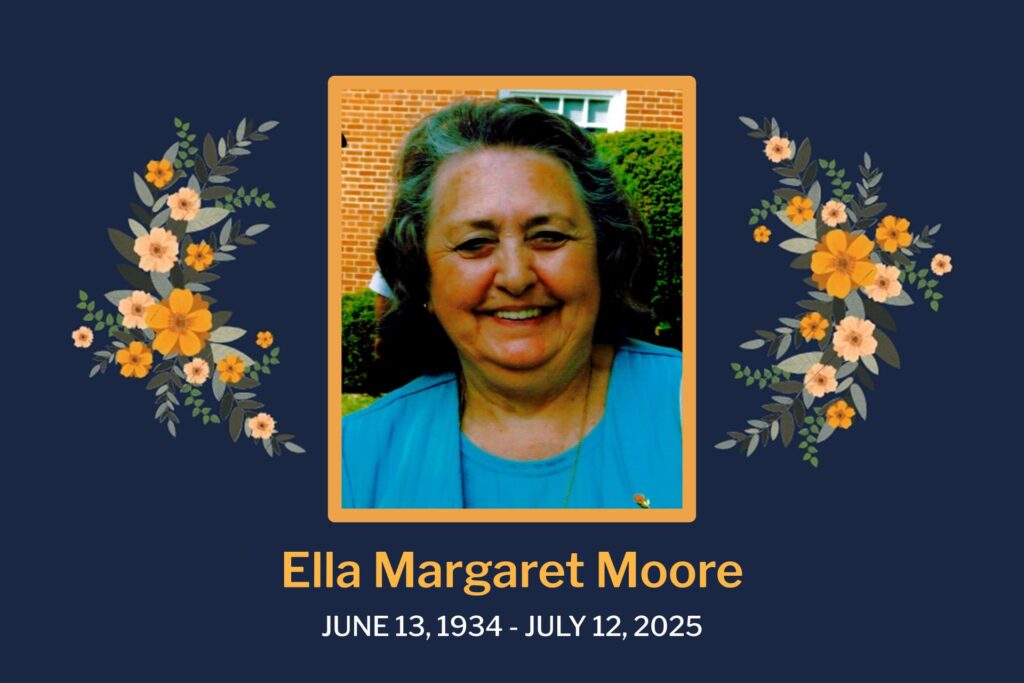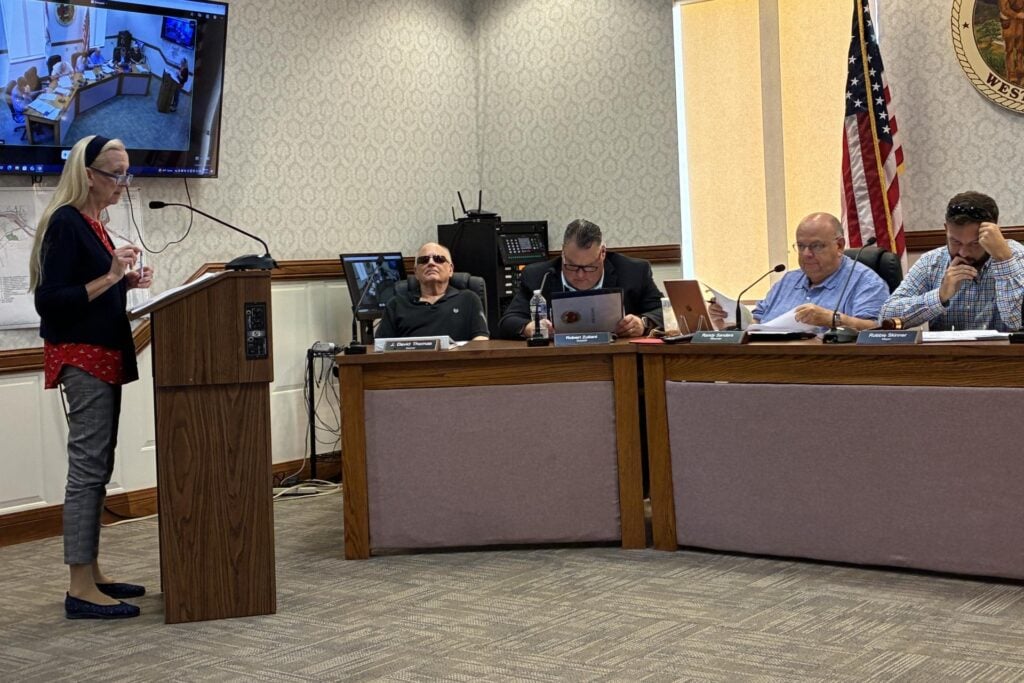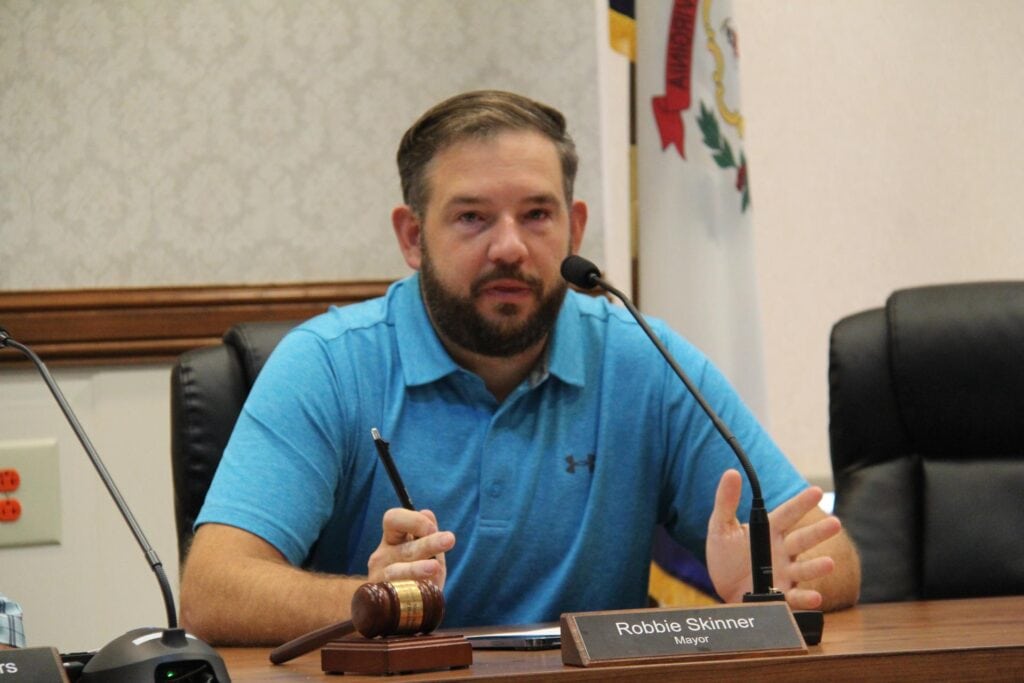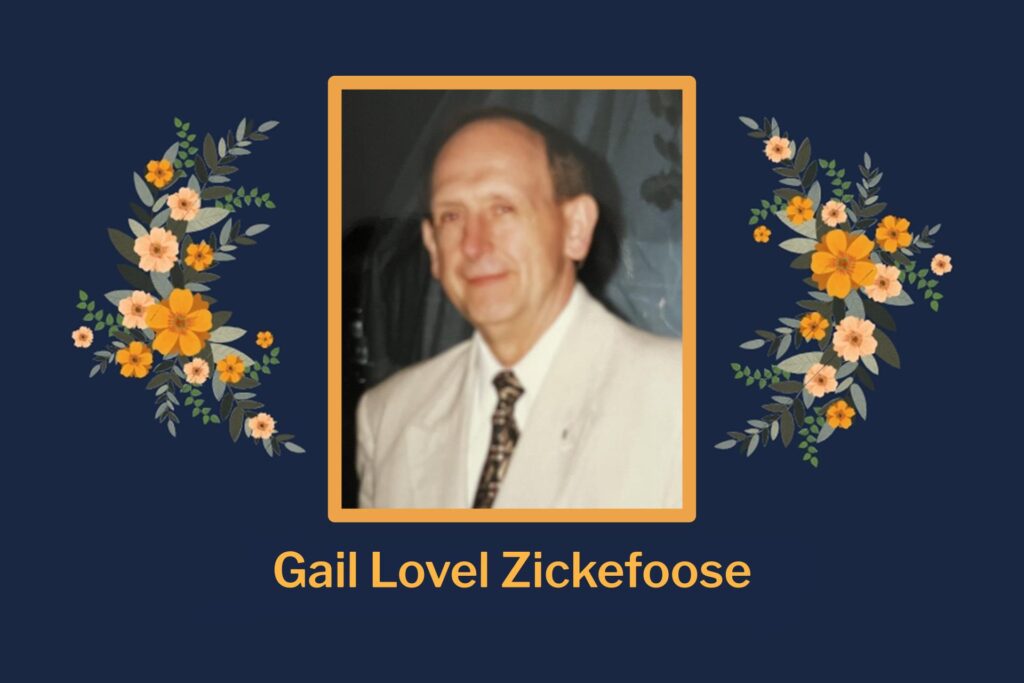BUCKHANNON – The interim president of West Virginia Wesleyan College said Thursday that the institution hopes to position itself as a “major player” over the next decade in solving the Mountain State’s numerous health-related challenges.
Dr. James Moore came to the Feb. 16 Upshur County Commission meeting to update commissioners on the college’s recently solidified partnerships and reinvigorated vision and mission.
“We’re a rural state, we’re an aging state and I think we can all agree the numbers show that West Virginia has among the poorest health outcomes in the nation,” Moore said. “That’s something that I don’t want to see continue as a native West Virginian, so we want to be part of those solutions. The steps that we’re taking now in the direction of increasing the workforce numbers and workforce quality in and around health care – physical health, mental health and the administration of those two parts of health care – those are the steps we’re taking in a direction that’s going to have Wesleyan be a major player over the next five to 10 years in solving the health care challenges for our state.”
Moore also filled commissioners in on the details of two recently announced partnerships with healthcare organizations, one of which is with Mon Health System (Vandalia Health) through the Mon Health Scholars program. Mon Health System will guarantee employment to nursing majors obtaining their degree through Wesleyan, and WVWC students who sign on and pledge to work at Mon Health System for at least two years will receive scholarship funds.
Moore said college officials hope to eventually expand that same opportunity to Wesleyan graduates who earn either a Master of Science in Nursing degree or a Doctor of Nursing Practice degree.
“We’re excited about this partnership in particular because it gives us a chance to do something that many colleges and universities have kind of lost sight of lately, which is to be part of the solution to the problems we have in and around West Virginia,” Moore said. “The nursing shortage is a huge challenge that we’re all facing around here, so it’s a step in that direction for us as a college, and we’re really excited about it.”
The college is also teaming up with Community Care of West Virginia and Aetna Better Health to incentivize more people to train to become licensed clinical mental health counselors.
“We’re partnering with Community Care of West Virginia through a very generous private donation from Aetna Better Health of West Virginia,” Moore said. “We got $1.2 million from Aetna Better Health to partner with Community Care and launch a Master of Arts degree in Clinical Mental Health Counseling. Within about two years, we hope this will start to graduate licensed counselors. We all know that the mental health crisis is just that – a crisis – and as I said last week, there are six-month waiting periods at a minimum for people to get in and see a qualified mental health professional counselor.”
Moore said he was thankful he had a positive, longstanding relationship with his counselor.
“I don’t have to wait six months to get in once a month to see my counselor, and everyone in this room knows what a challenge that is,” he said. “We may be personally facing that waiting period and trying to get in to get help, and if not, we probably have members of our family who are waiting to get in and see professionals, so we want to be part of that solution.”
If WVWC’s new program can swiftly meet the required accreditation standards, college officials aim to enroll students in the program in mid-fall of 2023 or by the beginning of the January 2024 Spring Term.
Community Care of W.Va. will guarantee graduates of the program employment with them “the minute they walk out the door with that degree,” Moore said.
Moore said those recent ventures illustrate the college’s renewed overall vision of service to the north-central West Virginia area.
“Our goal — our mission and our vision — is to be able to serve the needs of our region,” he said. “I’ve said this often over the last couple of months, but my favorite two words in the name of this college are the first two: ‘West Virginia.’ We are here. We are proud to be here. I’m a native West Virginian myself and we see great needs in this region that we can be part of solutions to.”
Numerous opportunities exist through which the commission, the city and the college can partner and collaborate, “not just with workforce development, but with infrastructure, especially where that infrastructure touches or ties into municipal and county infrastructure,” Moore told the commission.
The interim president said Wesleyan plans to remediate a number of water flow and drainage issues on its campus, so in the future, he may return to the commission to request their assistance in some form, such as a letter of support. Moore emphasized that any enhancement to the campus will be completed with the Buckhannon-Upshur community in mind.
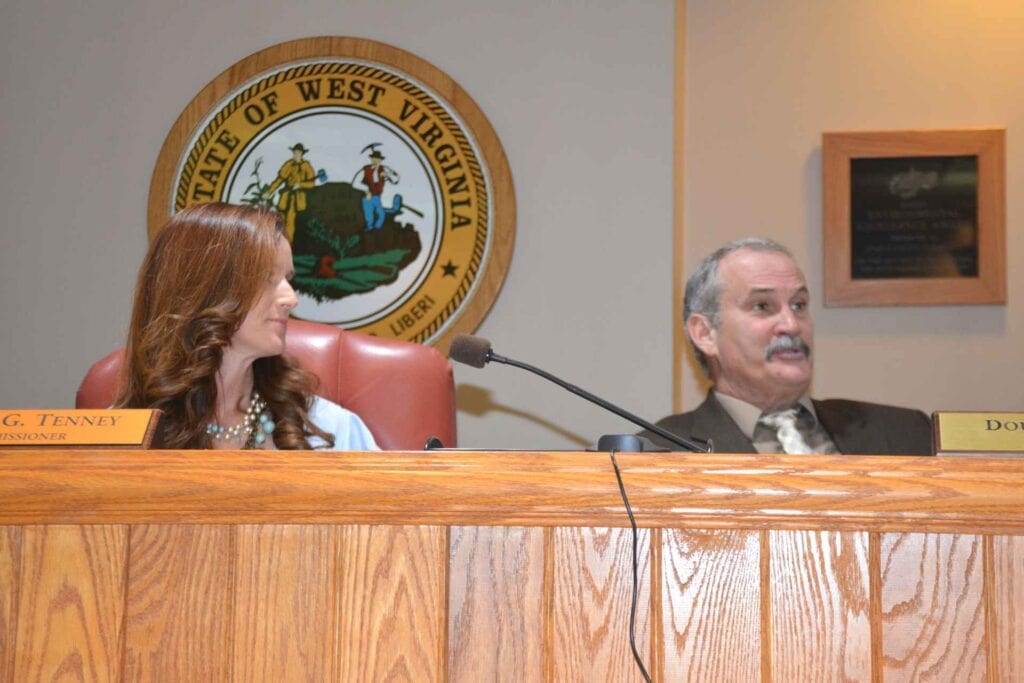
“I think it’s important that you all know we’re working diligently to improve our infrastructure, and I do believe that will have an impact on the citizens of the city and county,” Moore said. “As we embark on these facility improvements, we are also going to be very mindful that any renovations we do to existing structures – or pie-in-the-sky stuff here, any new structures – I want very much for those structures and those facilities to have an impact on the city and the county.”
“I want our residents of Buckhannon and of Upshur County to feel that Wesleyan is also part of their community; our facilities should be your facilities, and I mean that whole-heartedly,” he added.
Moore said city and county organizations and entities have frequently utilized college facilities in the past, but that’s faded due to the pandemic, and he’d like to see it return.
“I think it’s time, at least on the college’s part, to open the doors and invite everybody back in,” he said.



